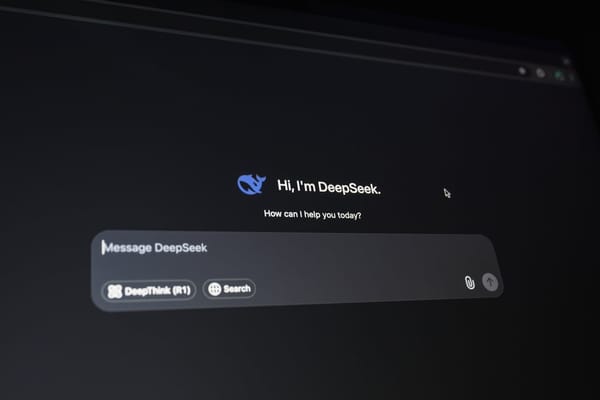Why Enterprises Love Java and .NET (And What They Won't Tell You)
Table of Content
If you’ve ever stepped into a corporate IT meeting, you've probably heard executives chanting, "Java this" or "NET that," as if they're ordering a combo meal from the Enterprise Fast Food Drive-thru. And why not? Java and .NET are the comfort food of enterprise software development—solid, reliable, but perhaps a little... predictable.
But what’s the secret sauce that makes these two the go-to choices for enterprises everywhere? And for the rebellious few who like to color outside the corporate lines, are there open-source alternatives that offer the same reliability without all the vendor lock-in?
The Java Obsession: "Write Once, Run Everywhere... Except on Fridays"
Java’s been around for ages, and enterprises love it. Why? Because it's like that pair of sweatpants you’ve had since college—it might not be trendy, but it still fits. Plus, Java’s promise of “Write Once, Run Anywhere” is still a massive selling point. You can build something in Java and have it running on your local coffee machine, a supercomputer, or your uncle’s decade-old server (if it hasn't caught fire yet).
But what really sells Java in enterprise settings?
The enormous ecosystem, corporate backing (thanks, Oracle!), and the legions of developers who speak Java fluently. And when you’ve got billions of dollars on the line, playing it safe with a tried-and-true solution isn't a bad idea.
But wait... are there open-source alternatives to this aged software powerhouse? You bet! If you're a daring soul who likes to live on the edge (or, you know, save some money), try Kotlin. It’s modern, less verbose, and fully interoperable with Java. Plus, it's gaining traction faster than Java developers at a free buffet.
Java’s claim of backward compatibility
Java's claim of backward compatibility is often touted as a major strength, but it isn't entirely true. While Java strives to maintain compatibility between versions, changes in the language and platform can lead to issues when running older code.
Deprecations, removed APIs, and differences in JVM behavior occasionally break legacy applications. So, while Java generally supports older code, the promise of flawless backward compatibility can sometimes be more myth than reality in practice.
.NET: Microsoft's Enterprise Darling (Or: How I Learned to Love the Framework)
.NET is like Java’s corporate cousin—just as serious but with fewer "hippie" open-source vibes.
Microsoft has positioned .NET as the ultimate framework for building everything from desktop apps to web services. With a reputation for excellent performance and enterprise-grade support, it’s no surprise big companies swoon over .NET.
Let’s be real: .NET comes with the whole package—security, scalability, and the ability to integrate with other Microsoft products (because why not lock yourself into one ecosystem for life?). And don’t forget C#.
It’s like Java but with a bit more pizzazz. The tooling? Fantastic. The Visual Studio experience? Some say it’s like sitting in a cushy chair while coding.
But for the adventurous? Enter Mono or .NET Core—open-source frameworks that allow you to work with C# without fully committing your soul to Microsoft. Oh, and there’s Rust, if you want to feel like a true programming hipster while still enjoying great performance.
So Why Do Enterprises Stick with Java and .NET?
Let’s face it—enterprises like things safe. Stability, long-term support, and huge communities of developers who’ve been around since dinosaurs roamed the Earth (or at least since Windows XP) are pretty comforting for a business handling millions of users and terabytes of data.
Java and .NET are also battle-tested, meaning they’ve been used in so many different scenarios that there are few surprises left. And what’s more important to a company than avoiding those 2 a.m. emergency calls from the dev team?
Fun Fact: Why Enterprises Won't Switch to Alternatives
Enterprises are kind of like that friend who always orders the same thing at the restaurant, even though there are 50 options on the menu.
Why? Because they know what they’re getting. There's no risk, no surprises, and no chance of developing sudden, unforeseen allergies.
But deep down, in the IT department, some developers dream of running with the open-source crowd, breaking free from vendor chains, and diving into something more... spicy.
Open-Source Alternatives That Won’t Get You Fired (Probably)
- Kotlin (Java alternative): A modern language that feels less like writing an essay and more like writing a tweet. You get all the Java power without the excessive boilerplate.
- Rust (for performance geeks): If you want something blazing fast and don’t mind a learning curve steeper than Everest, Rust’s your jam.
- Python (because Python, duh): If your enterprise still hasn’t hopped on the Python bandwagon, introduce them to it. They’ll thank you when they see the productivity boost. Python's not quite a Java/.NET replacement for every situation, but for data science, scripting, and more, it’s a superstar.
- Node.js: Why write Java code for web apps when you can write JavaScript everywhere and forever? Developers already know it, and enterprises can’t escape it. If they think they can, they’ll likely find themselves tangled in a web (pun intended).
- Go (Golang): Google's brainchild, it’s simple, fast, and efficient. Plus, it compiles to a single binary file, which is an enterprise's dream come true.
- Django or Flask: Want to build web apps? These Python frameworks will do the job with a fraction of the code required by Java or .NET equivalents.
The Bottom Line (Or Why Change is Hard)
Java and .NET aren’t going anywhere anytime soon. They’re reliable, stable, and come with a solid corporate support system. But for enterprises that are feeling a little more daring—or maybe just a bit tired of paying high licensing fees—there are plenty of open-source alternatives that can handle the load.
If you’re tired of walking into those same meetings where “Java” and “.NET” are thrown around like free pizza coupons, maybe it’s time to gently nudge the conversation toward a new, open-source path. Just don’t expect that transition to be smooth—old habits die hard, especially in the enterprise world.
And hey, worst-case scenario, at least you’ll have some Kotlin or Rust knowledge to impress your developer friends at the next coding meetup!











